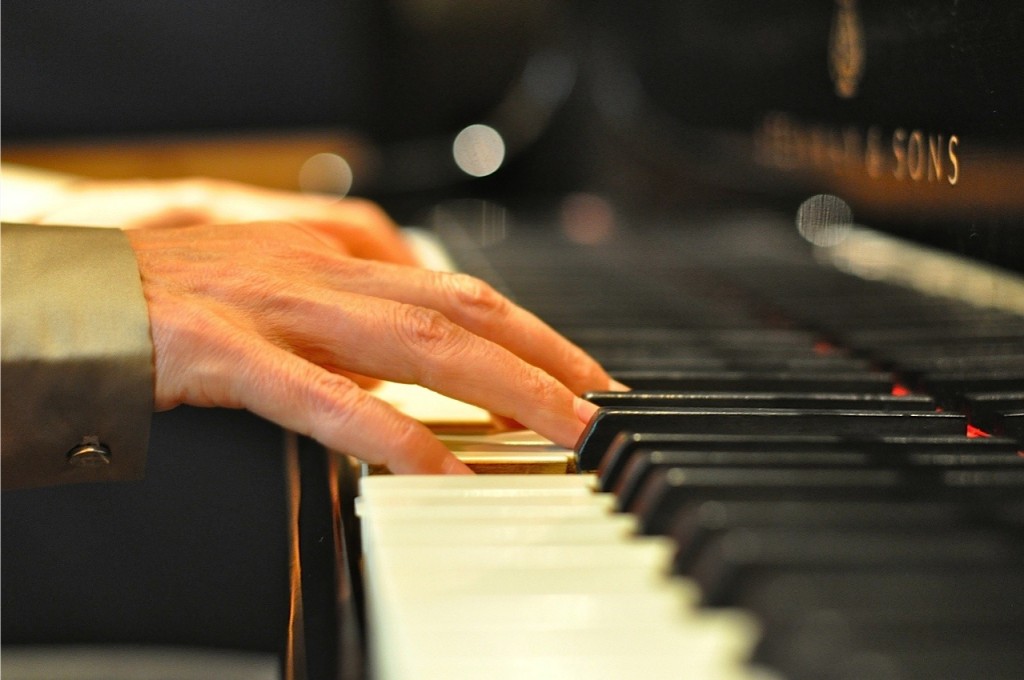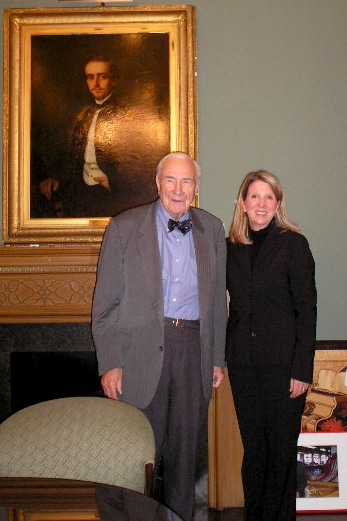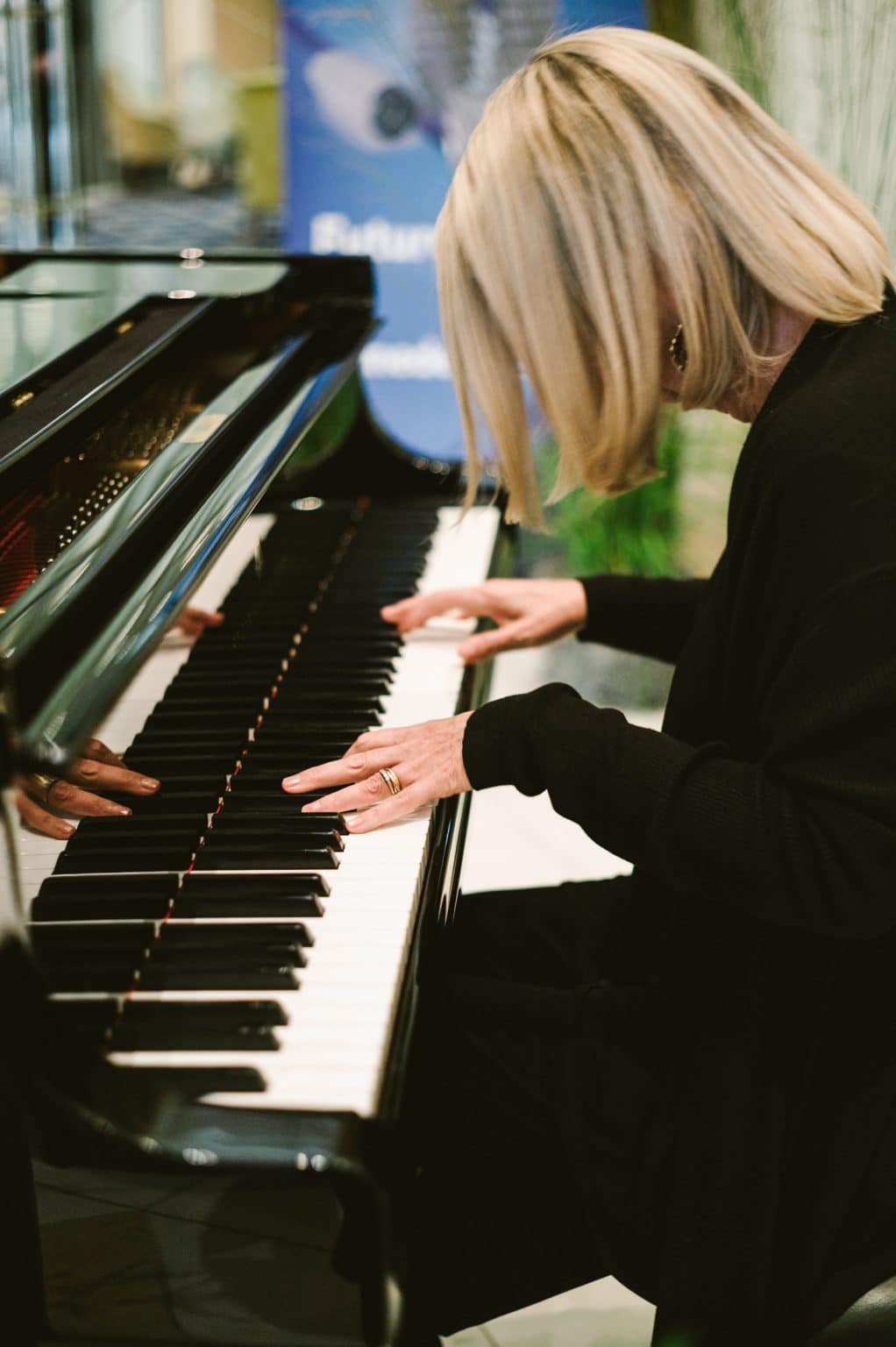
Manhattan, with its counterpoint of horn blasts, sirens, grumbles, whispers, and roars, performs a deafening sonata. I feel energized, defeated, inspired. I wonder how I ever lived here, or why I ever left.
To celebrate the publication of my first book, Piano Girl, Henry Steinway and Steinway Sales Representative Betsy Hirsch have invited me to present a solo piano concert and reading tonight in the famed Steinway Hall Rotunda. I open the heavy door of 109 West Fifty-Seventh Street and step from the bashing, flashing, pulse of the city into an embroidered oasis of tranquility. The high-domed ceiling, hand-painted by Paul Arndt in 1925, seems to scrape the sky. “Reach high,” it says to me. Maybe I’ll touch something worth remembering.
Betsy hugs me. “Ready for tonight?”. We walk down a portrait-lined corridor to a practice room, so I can prepare for the main event. Irene Wlodarski, a fiery redhead who looks like she could have been a Rockette in a former life, jumps from her desk to greet me. I feel at home.
**
Some buildings are haunted in a good way. Steinway Hall has always been such a place—a luxurious monument to the skilled artisans and musicians who have dedicated their lives to the complex mechanics of simple beauty. It’s not simple to build a piano; it’s also not simple to play one.
I met Henry Steinway last month, when I was in town to tape NPR’s Piano Jazz with jazz legend Marian McPartland. As Betsy escorted me back to Henry’s office, I felt my face burn and my hands tingle, the early warning signs of imposter syndrome wrinkling my newly pressed black suit. Back in the eighties, when I was working as a cocktail pianist in Manhattan hotels, I had been too intimidated to step into Steinway Hall. It seemed like a place where “real” pianists hung out—an elite club for the chosen few, a secret den with a painted ceiling that was home to the world’s best pianos and artists.
Betsy introduced me to Henry, a perfect gentleman with an affectionate handshake and a huge smile, and then left us alone to chat for thirty minutes. Henry, the last member of the Steinway family to serve as the company’s president, quickly put me at ease. How I loved listening to him talk about making pianos! He has always maintained a deep respect for those on both sides of the piano business—the makers of pianos and the makers of music. Artists might receive standing ovations, but Henry made sure his craftspeople heard their own share of applause.
Henry had read Piano Girl, so we had a long talk about the hotel music business, the tricky art of playing quality music when it seems like no one is listening, the joy of playing a great piano, even in a cocktail lounge full of chattering tourists and businesspeople. “Music is so very personal,” Henry said to me. “Every skilled pianist has something unique to say—it’s up to us to give them the means to say it.”
We talked about craft and skill and talent. We talked about imagination and the critical role it plays in all aspects of the piano business. We talked about writing books. Henry told me he wanted me to meet his brother-in-law, the great author William Zinsser, the author of On Writing Well and a hero of mine, whom he would invite to my concert the following month.
Henry Steinway, William Zinsser, Marian McPartland—I felt as if a golden triumvirate of nonagenarians had been appointed to guide my career. I discovered Steinway Hall was also entering its ninth decade. Perhaps ninety would be my new lucky number. I floated out of the hall that day after playing a dozen pianos, each one with a special historical pedigree, sensing that I had been dropped into a fantasyland of wood and wisdom, pins and hammers and perfect sound, all brought to life by an aging gentleman with an ageless vision, wearing a bowtie and holding court in a regal office that seemed more like a home than a work place.

**
“Here,” Betsy says, on the eve of my performance. “You can warm up here. It’s Henry’s special room.” The piano technician tweaks a few last notes and then, after wishing me luck with my concert, leaves with Betsy. This is hardly a practice room; it’s a small recital hall with a perfect Steinway B, a warm-hearted piano that makes an audience listen. It’s a piano with no wrong notes, a piano that takes a decent player and makes her music sing. I love it here. I love the carpets, the oil paintings, the smell of the wood, the mantle of hope that cloaks me as I sit down to practice. There’s a buzz in the air that’s comforting and energizing all at once. Ghosts of Concerts Past? Maybe.
While warming up for the main event, I allow my mind to wander. My nerves jangle. I take some deep breaths. Decades of musicians have played in the Rotunda. Decades of edgy pre-performance sweaty-hands jelly-knees dry-mouth tension. Decades of genuine passion, decades of accidental bravery. In an attempt to muster some courage for myself, I try to summon the Ghosts of Concerts Past. I tell myself the acoustic underpinnings of disappeared music—pirouetting silently down the staircase in double time—will carry me through the night. But musical ghosts don’t really exist. Or if they do, the minute I sit down to play the Steinway D in the Rotunda, they’ll flutter away and leave me to fend for myself. No help from the Ghosts. Henry was right: Music is personal—that’s the glorious (and scary) thing about it.
I leave the practice room and stand on the balcony overlooking the concert space, peering down through the prisms of the enormous crystal chandelier onto the coiffed and stylish heads of the guests below. It is time. One hand firmly on the railing, I descend the long, curved staircase, greet my audience, greet the piano, and begin. I read my goofy Piano Girl stories about hotel piano bar shenanigans and play my sincere solo-piano compositions with titles like Twilight, Peaceful Harbor, and Mountaintop. I say what I need to say. It’s hardly a perfect performance but it’s better than it should be because I’m assisted by this marvelous instrument, in this magical place. I am now part of a Steinway Hall Rotunda tradition that all of us think will last forever.
**
Years later, when I learn that Steinway Hall has been sold, I’m overcome with sadness, a grief deepened by the recent loss of Henry. If walls could sigh, if corridors could cry, if chandeliers could sing forgotten compositions and repeat familiar refrains, what would they say to us? Move on. Music doesn’t live in buildings, even the ones with fancy oil paintings and domed ceilings. Music is human. It lives in the craftspeople charged with making these pianos; it lives in the hearts and souls of the musicians who play them. I imagine the Ghosts of Concerts Past on moving day, teary eyed and a little belligerent about leaving, but eager to catch up to the parade of vehicles departing from West Fifty-seventh Street.
And then, dancing in time to piano music only ghosts can hear, they’ll follow the vans and trucks to Steinway Hall’s newest home. There, a little disgruntled and perhaps missing the swank of the hand-painted ceiling, they’ll do what ghosts do best—they’ll take revenge by resorting to ghostlike skullduggery: they’ll rattle the chandeliers, flicker lights, send a cold breeze from nowhere to freeze the trembling hands of an on-deck performer, disconnect a sustain pedal or cause a key to stick—probably a Bb—to completely screw up anyone’s attempt at sounding good. Or maybe, they’ll stop their yammering and haunting, and listen to the music they helped create, hoping to hear a little of themselves in someone else’s playing, because even ghosts have big egos. Music past and music present—all of it very personal, some of it worth remembering.
*****
Note from Robin: A special shout-out to Betsy Hirsch, twenty-one year Steinway veteran, wrangler of piano ghosts, and fabulous songwriter. Her new song, “Something’s Gotta Give” is a proactive and appropriate response to the Orlando tragedy. Good for you, Bets.
Robin Meloy Goldsby is a Steinway Artist. She is also the author of Piano Girl; Waltz of the Asparagus People: The Further Adventures of Piano Girl; and Rhythm: A Novel.
Brand new: Manhattan Road Trip, a collection of short stories about (what else?) musicians. Go here to buy Manhattan Road Trip!
Sign up here to receive Robin’s monthly newsletter. A new essay every month!

